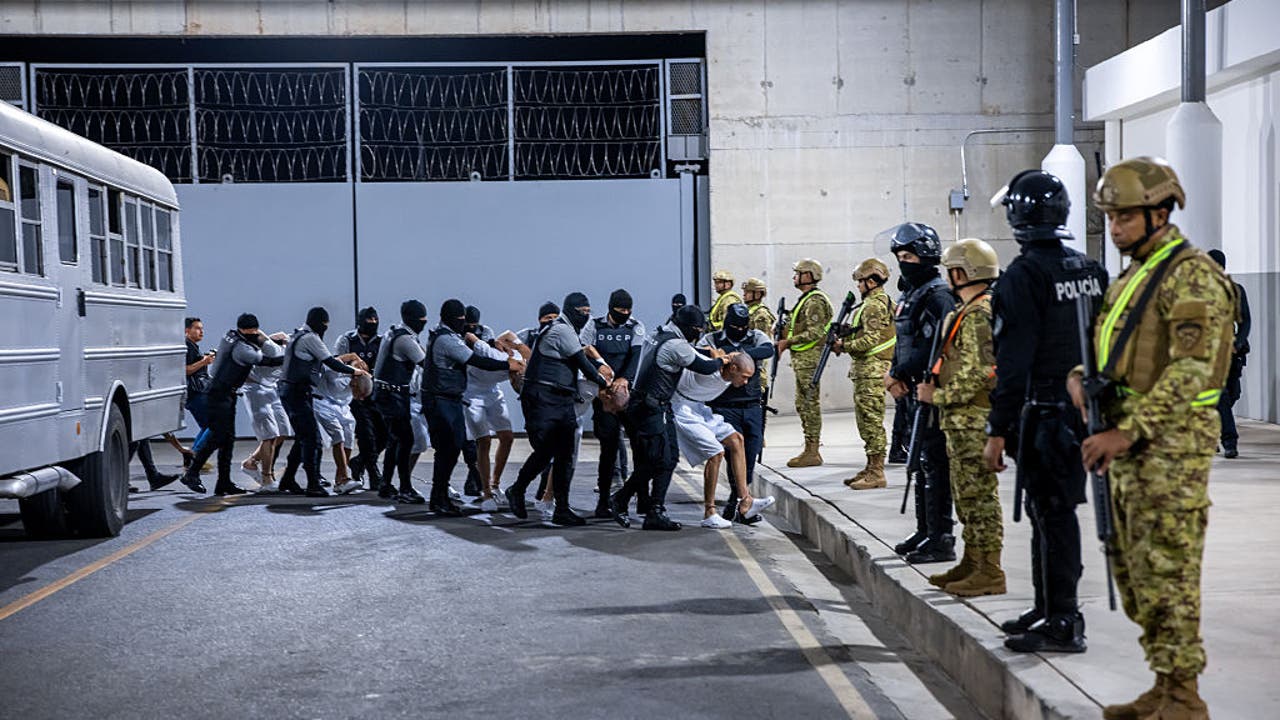WASHINGTON – The U.S. government says it mistakenly deported a Maryland man to El Salvador as part of the Trump administration’s recent immigration reforms.
What we know:
Kilmar Armando Abrego-Garcia, 29, was arrested in Baltimore on March 12 after working a shift as a sheet metal apprentice and picking up his 5-year-old son, who has autism and other disabilities, from his grandmother’s house, according to his lawyers.
Abrego Garcia was then sent to the Terrorism Confinement Center, or CECOT, which activists say is rife with abuses and where inmates are packed into cells and never allowed outside. Abrego Garcia’s wife later saw him in photos and video from the prison, identifying her husband through his distinctive tattoos and two scars on his head.
Abrego-Garcia was removed to El Salvador. U.S. Immigration and Customs Enforcement officials admitted in a court filing on Monday to an “administrative error” in deporting him.
Abrego-Garcia’s wife, Jennifer, says she has not heard from him since he was deported. The government has told the court that it has no power to order his return.
Abrego Garcia’s lawyer, Simon Sandoval-Moshenberg, said U.S. government lawyers had multiple opportunities to try legally to deport him, including appealing the judge’s 2019 decision or deporting him elsewhere.
“There are lots of things they could have done,” Sandoval-Moshenberg told The Associated Press. “But each one of those is in a court and gives him the opportunity to defend himself. And they didn’t do any of them. They just put him on an airplane.”
The backstory:
In April 2019, an immigration judge found credible evidence that Abrego-Garcia was a member of the MS-13 gang, based on information from an unnamed informant who had provided reliable information to authorities in the past.
Abrego-Garcia has repeatedly denied being a gang member. His lawyers argue that the U.S. government “has never produced an iota of evidence” that he is affiliated with MS-13 or any other street gang.
In October 2019, he convinced an immigration judge that he had credible fears of being killed if he returned to El Salvador. As a result, the judge ordered a withholding of removal, which meant that Abrego-Garcia could not be deported to El Salvador, but could be deported to another country.
Abrego-Garcia has no criminal record in the U.S., aside from a few traffic violations. He had regularly checked in with immigration authorities.
Dig deeper:
In a lawsuit over his deportation, Abrego-Garcia has filed for habeas corpus. It’s a Latin term that means “free the body.” It allows someone in the U.S. to petition when they believe they’ve been wrongfully detained. The government says this may have applied while he was in U.S. custody, but since he’s no longer in U.S. custody, it doesn’t apply.
The Trump administration argued against his return to the U.S., citing alleged gang ties and claiming that he is a danger to the community. They also argued that the court lacks jurisdiction in the matter because Abrego Garcia is no longer in U.S. custody.
The administration wrote that Abrego Garcia’s attorneys “do not argue that the United States can exercise its will over a foreign sovereign. The most they ask for is a court order that the United States entreat — or even cajole — a close ally.”
The Source: This story includes reporting from FOX 5 DC’s Katie Barlow and information from the Associated Press.
















